Breaking Barriers in Geology: "Resilience is My Compass"
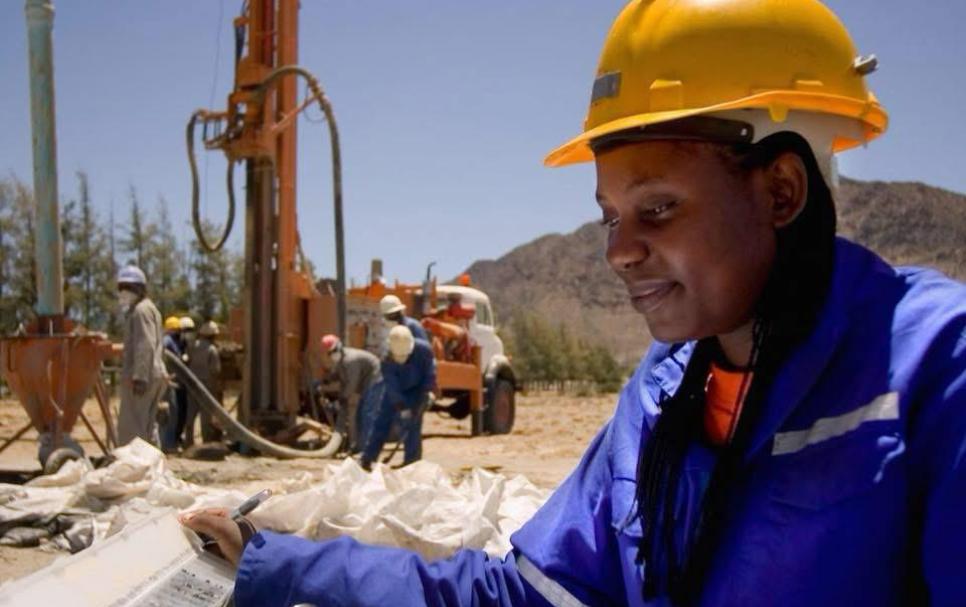
In an industry historically dominated by men, Mwale Matengu is carving out her space. As the Chief Geoscientist for Economic Geology at Namibia’s Ministry of Mines and Energy, her journey is a testament to resilience, determination, and the drive to break barriers.
For decades, geology and mining were seen as male-dominated fields, with young women often steered toward more conventional careers like teaching, nursing, or office administration. Instead of being encouraged to explore the sciences, many were told to pursue "safe" professions that aligned with traditional gender roles. Growing up in a former village of Bukalo (now town) in the Zambezi Region, Matengu had little exposure to careers in mining or geosciences. "At school, we were mostly introduced to careers in medicine, education, or law enforcement. We had no idea about geology, mining engineering, or investment banking," she recalled. But something about the way the land told its own story intrigued her. From an early age, she was captivated by the earth’s composition how rocks, minerals, and landforms held a geological history spanning millions of years. That curiosity, combined with her strong aptitude for mathematics and science, set her on an unexpected path.
After completing her secondary education at Kizito College, Matengu knew she wanted to pursue a field that combined her love for natural sciences and problem-solving. But the journey to get there was far from easy. Financial constraints made it difficult to pursue her initial goal of studying Mining Engineering at the University of Namibia, despite sponsorship opportunities. Instead of giving up, she adapted. "Looking back, that challenge shaped my journey in a way I never expected," she reflected. Determined to stay in the field, she enrolled in a Bachelor of Science program with a focus on Geology and Chemistry and she successfully completed her degree in 2004. An accomplishment she described as a pivotal decision which opened doors to opportunities she had never imagined.
Her career took off in 2005 when she furthered her studies at the University of the Witwatersrand in South Africa, enrolling in a Bachelor of Science Honours program in Geology. Upon completion, she secured an apprenticeship with Rosh Pinah Zinc Corporation under Exxaro Resources. The experience was eye-opening. "At Rosh Pinah, I quickly learned that being a woman in this industry meant constantly having to prove yourself," she said. As the mining sector remained a male-dominated space where women often had to work twice as hard to be recognized. She encountered skepticism from some colleagues who questioned her technical skills simply because of her gender.
Determined to rise above stereotypes, Matengu remained focused on technical excellence. She sought mentorship from industry professionals, including Ms. Petronella Mubita, Mr. Eric Mouton, and Mr. Renias Mukwashi, all of whom helped shape her career. "Having a strong support network made a difference. It reinforced my confidence and kept me motivated in moments of doubt," she shared. Despite the racial and gender biases she faced, her resilience and expertise earned her respect. Over the years, she worked in diverse roles, including Exploration Geologist, Mine Geologist, and Mineral Resource Geologist, honing her skills across different mining operations.
At times, the challenges felt overwhelming. Long working hours, remote field assignments, and balancing a personal life with a demanding career tested her resolve. "Geology is not a desk job. Fieldwork requires you to drive long distances, sleep in tents, bathe in containers, and sometimes go days without proper meals," she explained. For women, the obstacles are even greater. "There are no special accommodations whether it's the rugged terrains, exposure to wild animals, or the lack of privacy, you have to be prepared." Instead of being discouraged, she embraced these experiences. "I learned early on that resilience is my strongest asset," she said.
Determined to push boundaries, Matengu pursued a Postgraduate Diploma in Engineering with a major in Geostatistics and Mineral Resource Evaluation. This specialized training positioned her as an expert in assessing the economic value of mineral resources, an essential skill in the mining sector. Over the years, she worked across various mining operations, from uranium to zinc, and later took on leadership roles in mineral resource management. In 2015, she was appointed Chief Geoscientist for Economic Geology at the Ministry of Mines and Energy—a role that allows her to lead critical projects shaping Namibia’s mining future. Her work involves mineral prospectivity mapping, using advanced methodologies such as geophysics, geochemistry, GIS, and remote sensing to assess the country’s mineral potential.
Matengu’s impact on the industry has been significant, one of her proudest achievements has been leading the project on Mineral Prospectivity Mapping of Sediment-Hosted Copper in Fransfontein Map Sheet 2014, Kunene Region and Namibia. This initiative, part of the Namibia–Sustainable Use of the Mineral Resource Potential project, integrates multidisciplinary geoscientific data to promote mineral exploration investment. In 2024, her work gained international recognition when she represented Namibia at the JOGMEC GIS and Remote Sensing Competition in Botswana. Competing against teams from 11 other African countries, her project secured second place, a moment she describes as career-defining. "That recognition wasn’t just for me, it was for every aspiring female geologist proving that we belong in this space," she emphasized.
Beyond her technical achievements, Matengu is a passionate advocate for gender diversity in mining. As an active member of Women in Mining Association Namibia (WiMAN), she is committed to breaking stereotypes and opening doors for young women. "Success in this field is about competence and confidence. Gender should never be a limitation," she said. She also plays a key role in mentoring young geoscience professionals through the YES Network Namibia, ensuring the next generation of women in mining has the support and guidance they need.
Her advice to young women looking to enter geology is a powerful message "Believe in yourself, work hard, and never let anyone tell you that you don’t belong. Your success will open doors for others." Acknowledging that change is needed to make the industry more inclusive, advocating for better hiring practices, mentorship programs, and flexible work arrangements for women. "Companies must take diversity seriously. Representation at leadership levels matters," she insists.
Today, Matengu continues to push boundaries in the mining sector while inspiring young women to step into geosciences with confidence. Her advice to the next generation is simple yet profound: "If someone doubts you, just smile and say, ‘Watch me.’"
- 449 views


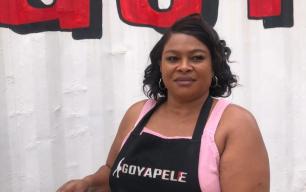
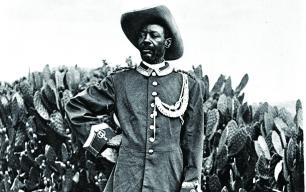

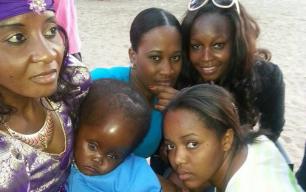
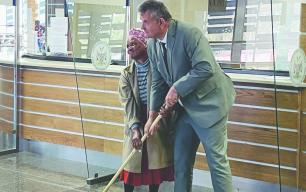

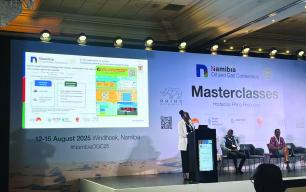
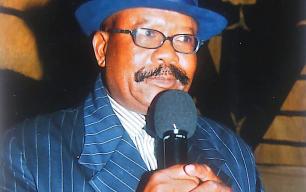
Comments